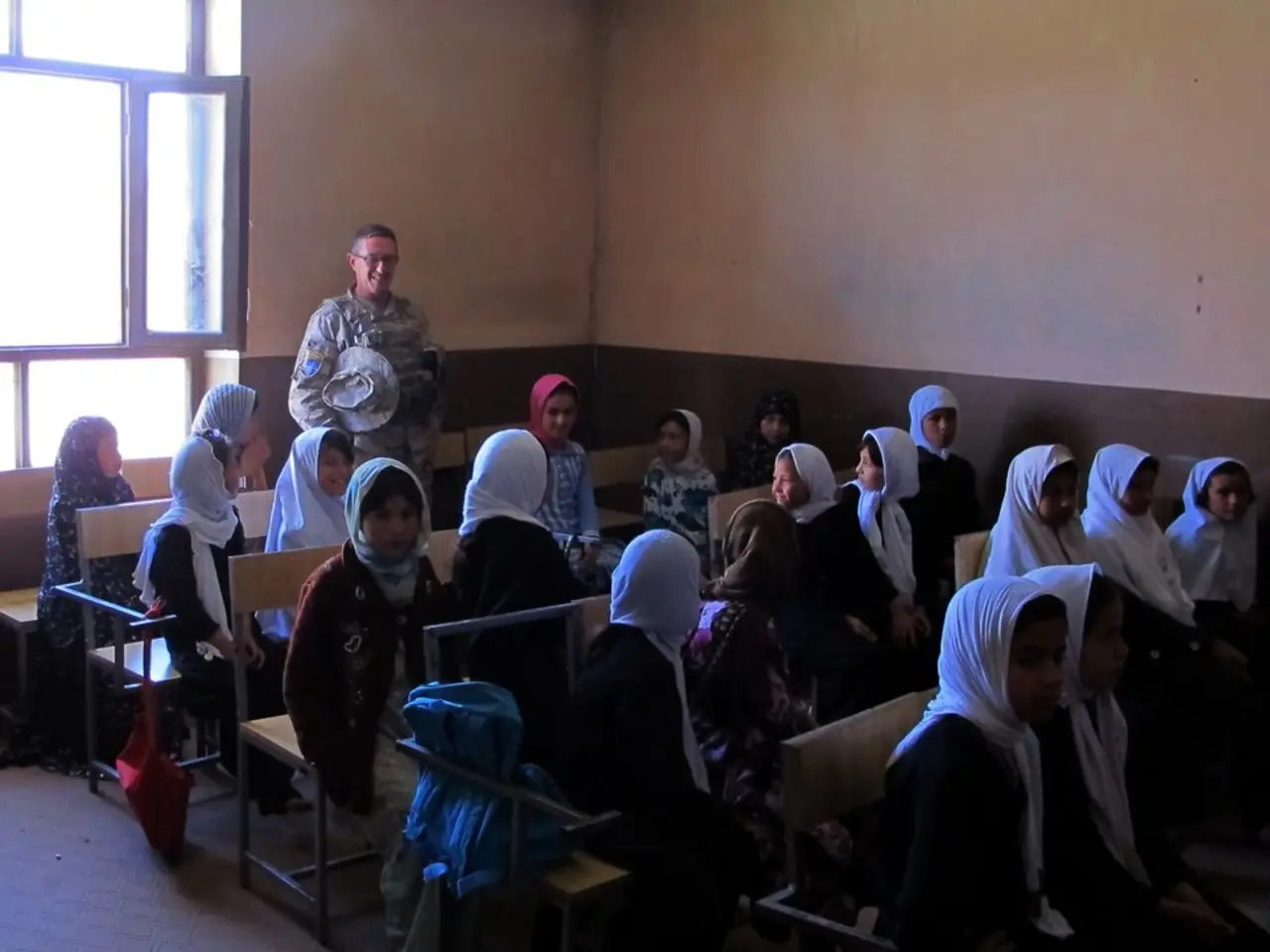U.S.-mediated agreement, set for signing by Aliyev and Pashinyan, scheduled at the White House on August 8th.
After a series of negotiations and diplomatic meetings, Azerbaijan and Armenia have finally reached a comprehensive peace agreement regarding the disputed territory of Nagorno-Karabakh. The agreement was signed in August 2025, following a meeting at the White House, brokered by the United States.
The agreement includes a significant provision that awards the United States exclusive special development rights for 99 years over the Zangezur corridor land in southern Armenia. This corridor, now renamed the Trump Route for International Peace and Prosperity (TRIPP), will connect Azerbaijan to its Nakhchivan exclave.
The Zangezur Corridor has been a contentious issue in the ongoing negotiations between the two countries. Armenia had expressed security concerns about granting Azerbaijan "unimpeded" passage through its territory and disagreed on control over the corridor. Russia's proposal to secure the corridor with its troops was also rejected by Armenia.
However, the U.S.-brokered deal has managed to overcome these obstacles, sidelining Russia and Iran's influence. Iran, in particular, had opposed the corridor due to concerns about its impact on regional security and border integrity.
As part of the agreement, Armenia has agreed to amend constitutional clauses related to Nagorno-Karabakh. A constitutional referendum is planned for 2027 to address Azerbaijan's concerns. The deal also paves the way for reopening long-closed borders between Armenia and Turkey, a priority for Armenia’s government.
The U.S. Ambassador Thomas Barrack had previously proposed that a US company lease and manage the Zangezur Corridor for 100 years to address both sides' concerns. Türkiye, a key ally of Azerbaijan, had also proposed a neutral private operator to manage the corridor.
The signing of a memorandum of understanding is planned for the meeting at the White House. The agreement marks a major shift in regional dynamics, reducing Russian and Iranian influence, and representing a vital component of the new Armenia-Azerbaijan peace agreement.
The conflict over Nagorno-Karabakh traces back to the early 1990s, when Armenia occupied territory internationally recognized as part of Azerbaijan. After a major offensive in 2020 and a final operation in September 2023, Azerbaijan regained full control of the Karabakh territory. The Armenian population fled, and the self-declared republic was formally dissolved on January 1, 2024.
[1] ABC News, "U.S. Brokers Peace Deal between Azerbaijan and Armenia," August 2025. [2] Reuters, "Armenia Agrees to Amend Constitutional Clauses over Karabakh," August 2025. [3] Al Jazeera, "Iran Opposes Zangezur Corridor, Citing Security Concerns," July 2025. [4] BBC, "Armenia-Azerbaijan Peace Deal: What's in it for Armenia?" August 2025. [5] The New York Times, "The Zangezur Corridor: A New Era of Cooperation between Azerbaijan and Armenia," August 2025.
- The USA will have exclusive special development rights for 99 years over the Zangezur Corridor in southern Armenia, now named the Trump Route for International Peace and Prosperity (TRIPP), as per the peace agreement signed in August 2025.
- The agreement, brokered by the USA, has sidestepped Russia and Iran's influence, with Iran, in particular, having opposed the corridor due to concerns about regional security and border integrity.
- Under the terms of the agreement, Armenia has agreed to amend constitutional clauses related to Nagorno-Karabakh, with a constitutional referendum planned for 2027 to address Azerbaijan's concerns.
- The Zangezur Corridor, a contentious issue in the negotiations between Azerbaijan and Armenia, will connect Azerbaijan to its Nakhchivan exclave and reopen long-closed borders between Armenia and Turkey.
- The Turkish government, a key ally of Azerbaijan, had proposed a neutral private operator to manage the corridor, aligning with an earlier proposal by the U.S. Ambassador Thomas Barrack that a US company lease and manage the Zangezur Corridor for 100 years to ensure peace between the two nations.






